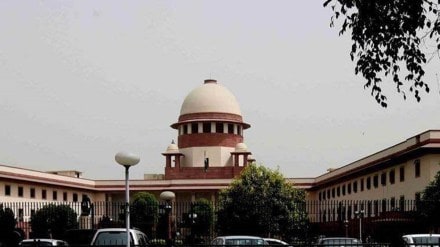A survey released this week revealed that 53% of adult Indians are in favour of legalising same-sex marriages. Conducted between February and March this year in 24 countries by Pew Research Center, the survey said 28% Indians were strongly in favour, while 25% were ‘somewhat in favour’ of the move. An Ipsos survey released last week found that nearly 9% of adults self-identified themselves as LGBTQ in the 30 countries surveyed between February and March. The Ipsos research also revealed that approximately 56% people in the 30 nations opined that same-sex couples should be able to marry, and 16% believed that there should be some form of legal recognition, if not marriage. In India, it is projected that about 10% of the population is LGBTQ, but only about 2% are open about it.
As the Supreme Court of India is set to deliver a verdict on petitions by same-sex couples, seeking the right to marry for LGBTQIA+ persons, these numbers could be a swinging factor. It has already been five years since the apex court decriminalised homosexuality in 2018, declaring Section 377 to be unconstitutional.
Whatever reasons sway the court’s decision—in favour or otherwise—it could consider the merits of same-sex marriage, many of which are economic.
Considering macro-economics, the number of marriages is directly proportional to economic growth, family incomes and upward economic mobility. The benefits of an extra 10% (if 10% of India’s population is LGBTQ, this translates to 140 million people) getting added to the marriage club cannot be insignificant.
Starting at an individual level, consider the benefits of family social capital in inheritance, joint taxes, house ownership, insurance, employer benefits and even alimony. Take it to the family level and you have higher incomes, reduced responsibilities, more savings and better economic support for children.
Magnify the scale and the added numbers to the wedding business alone will be a big boost to the economy. If same-sex weddings boosted the American economy in five years after legal approval (2015-2020) by $3.8 billion, imagine the numbers for India, home to the big fat wedding industry sized at approximately $210 billion, when an additional 10% of the population joins in.
Perhaps the most important impact of legalising same-sex marriages would be on health and wellbeing, and the consequent positive impact on the economy. Social acceptance and freedom to marry a partner of choice will just increase positivity, leading to better mental and physical health, resulting in healthier and happier people in the national workforce. Present statistics indicate that gay people, particularly youngsters, are more prone to suicide for fear of social ostracisation and condemnation. Acceptance of same-sex marriages swings the needle firmly to the other side of the scale. The same argument can be applied to reasons for drug and alcohol abuse. Marriages also mean lesser sexual partners, and reduced risks of sexually transmitted diseases such as HIV/AIDS etc.
Even as legal recognition of such unions remains elusive, it is not that gay marriages are not happening in India. The first documented gay marriage was of Urmila Srivastava and Leela Namdeo, both policewomen in the Madhya Pradesh police force, who married each other in a Gandharv ceremony in a temple in 1987. Since then, there have been several stories of gay marriages and unions, many of them involving celebrities as well.
Among the many objections on the issue, the one holding the most force cites Indian cultural and religious ethos. Going by this argument alone, accepting homosexuality but objecting to marriages means condoning live-in relationships. So is “living in sin” in perpetuity sanctioned by religion? If same-sex alliances have been accepted, why not a formalisation of the relationship, with the granting of complete rights reserved for couples?
Also read: Rethinking deposit insurance in India
On a global stage, India being a signatory to the 2030 Agenda for Sustainable Development, is committed to upholding the Sustainable Development Goal (SDG) 5 of gender equality. Denying the right to legally marry to all genders, including LGBTQIA+, is denying gender equality.
On a national level, it’s a decision that could swing millions of votes in an election year.
ivinder.gill@expressindia.com
